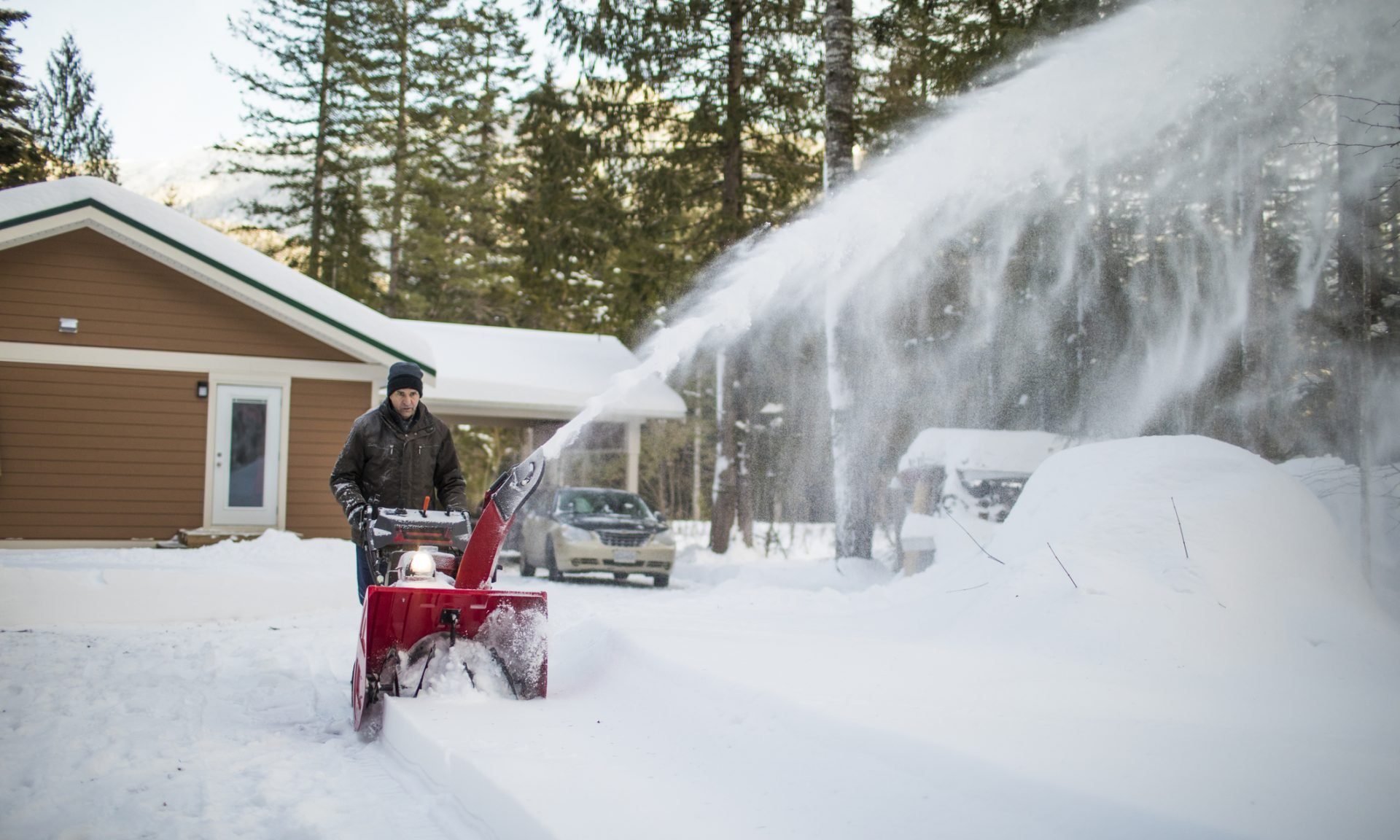7 Winter Business Ideas for 2022
Capitalize on an often-overlooked time of year with winter business ideas and tips to run a cool seasonal business.

Many, or all, of the products featured on this page are from our advertising partners who compensate us when you take certain actions on our website or click to take an action on their website. However, this does not influence our evaluations. Our opinions are our own. Here is a list of our partners and here's how we make money.
There's no point in resisting the winter season—it comes every year like clockwork and along with it can sometimes come a lull in business, especially if your business is one far more conducive to the spring or summer months.
If you're looking for a way to revamp your business for winter or want to start a business geared toward the winter season, we're going to go over seven winter business ideas, as well as how you can prepare your business for the cold months to come and tips any seasonal business owner should know.
Smart money moves for your business
Grow your small business with tailored insights, recommendations, and expert content.

Winter business ideas
Before choosing one of these winter business ideas, make sure you do some research into what's needed in your area and what the competition is like so you know there's actual demand for what you're going to be offering.
After all, the most common reason businesses fail is that there's no market need for the products or services they're offering. Before starting your winter business, make sure there's demand for what you'll be offering.
1. Sell Christmas trees
If you have the extra outdoor space, consider selling Christmas trees around the holidays as a winter seasonal business.
Stocking this specific and in-demand item can lead to some extra income. This winter business idea is especially good for those who already own hardware stores or garden centers, and it can help replace the lost income your business may typically experience during the winter season when people are doing fewer home or landscaping projects.
See if there are any farms near you with trees they're willing to sell you. Consider starting this winter business idea fairly small with a few dozen trees and see how they sell, then get more if you can or keep it in mind for next year. You can also sell other Christmas greenery like wreaths or garland for those who are looking to add some extra holiday cheer to their homes.
2. Make winter gift baskets
Our next winter business idea can be done by a variety of different businesses. Whether you're a bakery or a boutique retailer, you can put together festive gift baskets and offer them for sale as great gifts for coworkers, friends, or family. You can include your own products in the gift basket, as well as some weather-oriented or other seasonal items people might enjoy.
If you don't want to premake each basket ahead of time and instead offer more customization, you can also offer different packages and allow customers to choose what they'd like in the basket before putting it all together and wrapping it nicely. For an added bump in income, offer to deliver the baskets within a certain radius of your business, or ship them to farther destinations.
3. Snow removal
Businesses like contractors and landscapers might find that they have less work in the winter when it's difficult to do any work outside. However, a related winter business idea is to offer snow removal services to fill this gap.
If you already run a contracting or landscaping business, you likely already have trucks necessary for such work but might need to invest a bit more for plowing equipment or a snowblower in order to be successful in this winter business. If those additional pieces of equipment are too expensive to buy outright, equipment financing could be a solution.
Snow removal is an in-demand winter business—as long as you live someplace where it snows—and contractors or builders likely already have a client list of people who might need some digging out when the time comes. However, you don't need to be in one of these careers to leverage this winter business idea for yourself. As long as you have the equipment and enough potential customers, this can be a lucrative winter business for just about anyone.
4. Host corporate events
If you own a wedding venue, restaurant, or other event space, you might find it lucrative to offer packages to companies looking to host their annual holiday parties. These parties are often scheduled for the early evening and usually during weekdays when you may not be as bust as you are on the weekend, for example.
The nice thing about hosting these parties is that they likely don't vary much from one another: You can offer each company set menu options to choose from and standard decoration options. Hosting such parties can be an added boost and bring in more revenue than a regular weeknight might.
5. Home winter weatherproofing
Making the winter weatherproofing process quick and easy is another one of our winter business ideas. This is another idea that might be best suited to the handymen and contractors out there, but wouldn't be off-limits for a hardware store to take on. During the wintertime, people are always looking for better ways to weatherize their homes and keep the heat in and the cold out without having to do too much work.
You could offer a premade kit someone can buy and use themselves, or your own services in the form of house calls, for weatherizing windows and doors to keep the drafts from getting in and driving up your customers' electric bills. Consolidating all of the items customers will need for them makes the process simpler, and if you want to take it a step further you could offer services to complete the process for them.
6. Home cleaning business
No matter the time of year, no one enjoys cleaning. However, during the winter months, people are not only extra busy, but they are also likely expecting family to visit or to host a party of their own. So offering a cleaning service to people in your area could be a lucrative winter business idea to help people prep for their home-based winter events.
A big perk about this winter business idea is that, for the most part, you'll have reasonable daytime hours, as many people will have their parties at night.
Consider offering a special package to help your customers prepare for visiting in-laws or a family party like a package with a deep kitchen cleaning, or offer to set up their decorations in addition to cleaning.
7. Fitness instructor/personal trainer
With the new year comes resolutions, and there is no shortage of people looking to get in better shape and be healthier in the coming year. You can be a personal trainer or fitness instructor at any time of the year, but you might see more of a demand as the year starts out.
In order to become a personal trainer, you'll need some specific training and certifications; so this might be a better business for those looking to start a more long-term business. However, becoming a fitness instructor who teaches specific classes often has fewer requirements and could be easier to break into, especially part-time. Check with your local gym and boutique fitness studios about openings, as well as what qualifications you'll need to become an instructor.
Tips to run an effective seasonal business
No matter when your business high season is, any seasonal business has a specific set of challenges to keep their business profitable year-round. Whether you opt for one of these winter business ideas above or are trying to pivot your own seasonal business to another market, keep these tips in mind.
1. Think outside of the box.
As the weather changes, it’s easy to let yourself slip into a bout of seasonal, business-related depression. But, now's your time to think creatively. Your market is still there—they’re just focusing on other products and pursuits. Find what they’re interested in, and figure out how your core strength can adapt to be included in the conversation.
For instance, you can discover how to repurpose your product for a new time of year. Maybe that means expanding your product line or recreating something on your menu. Perhaps your ice cream shop turns to lattes for the cooler weather, or you switch from lavender to pine scents for your candle company. Let yourself explore outside of your default season.
2. Look deeper into your niche.
If you have a hyperspecific product, figure out what other products your niche would respond to, as well. There's a good possibility that if your market is a devotee to your product, you've caught onto something special about your group of consumers.
Step back and understand not only what's special about your product—but what's special about your customers. You may find it useful to send your customers a survey to find out more about what they'd like to see your business offer. Not only will your customers appreciate that you want their input, but you'll also likely walk away with some new ideas.
3. Be flexible.
Does anyone actually love to be adaptable? Every business owner works incredibly hard on their business plan, and among the most difficult things is to have to scrap hard work. But the hard truth is that just like seasons, markets change. Tastes change. And your business needs to change, too.
The more flexible and ready to adapt you can be as a business owner—whether that means turning your summer getaway into a winter resort, expanding your product line, or changing your model entirely—the better positioned you'll be for success.
How to prepare your business for winter
All of the business ideas we discussed thrive in the wintertime, but along with that comes the threat of winter weather and storms, which might not be so conducive to running your business smoothly. If you're considering launching one of the above winter businesses, or just want to prepare your year-round business for inclement weather, here are some tips.
Be prepared
Monitor local news and check weather forecasts at the National Weather Service website. Here are some terms you might hear and what they mean.
- Winter storm: Winter storms involve snow, sleet, or freezing rain.
- Ice storm: When 1/4 inch of ice or more builds up, driving and walking are hazardous, and power lines can break because of the weight of the ice.
- Blizzard: A blizzard involves snow, gusty winds up to 35 mph or more, near-zero-visibility conditions, and a wind-chill factor that can be life-threatening.
- Winter storm watch: Severe winter conditions might occur in the next 12 to 36 hours.
- Winter storm warning: Severe winter conditions are expected in the next 12 to 24 hours. This is defined as four to six inches of snow or sleet, or at least 1/4 inch of ice.
- Blizzard warning: A blizzard is expected in the next 12 to 24 hours.
Find and fix your business's vulnerabilities
When severe weather strikes, you need to protect your building or store, your employees, and any customers in the building, and your equipment.
Start by inspecting your building for any weaknesses that might lead to structural damage in case of a storm—leaks in the roof, cracks near doors and windows, and loose trim that could blow off and injure someone. Ask your landlord to repair any problems.
If your building maintenance doesn’t already handle this, make sure snow and ice are regularly removed from entryways, sidewalks, and roofs. If a customer slips on ice outside your doors, you could face a lawsuit.
Check your small business insurance coverage to make sure it’s adequate for any damages that might occur from a storm, and upgrade it if necessary.
Compile the phone numbers you might need in an emergency, such as the fire department, insurance company, landlord, electrician, plumber, snow removal service, and local utility companies. Store it in the cloud, and print out several copies in case you can’t get online or use your computer in an emergency.
Review the equipment and systems that keep your business running, such as computers and manufacturing equipment. What would happen if the power went out or the building didn’t have heat? A backup generator can help keep things running during a power outage.
Make a plan and stick to it
Even if a storm doesn't damage your building, it could lead to local power outages, downed trees, highway closures, or other obstacles to business as usual. Think through what might happen to your business in various scenarios—such as public transportation shutting down and preventing your employees from getting to work—and plan how to deal with each situation.
You, your employees, and even customers may need to shelter in place at your business if you get snowed in. Stockpile enough food and water for three days (you can ask employees to bring their own “emergency kits” with food and blankets). Have plenty of flashlights, at least one battery-operated radio, batteries, and a first-aid kit.
Plan how you will communicate with employees, vendors, and suppliers in case of an emergency. Create a list of contact information that includes alternative ways to communicate. For example, if phone lines are down, you might need to text employees. If you must close for a few days (or weeks), let customers know via your business website and social media accounts.
Decide at what point in a storm watch or warning you will let employees go home, close the business, or tell employees not to come into work. Create a chain of command so that if you aren’t available to make these decisions, someone else can.
Create a continuity plan
To keep your business running during or after a severe storm, set up the capability for people to work from home (if your type of business supports this). Having employees access your business network from home can expose it to vulnerabilities, so use cloud-based file-sharing and storage systems instead.
What if your building is uninhabitable after the storm or half your employees can’t get to work for a week? Figure out how you will keep the business running for an extended time if necessary. Business interruption insurance can help replace income lost if your business can't operate after a disaster.
Talk to vendors and suppliers about their emergency preparedness, too. If you rely on steady delivery of inventory from a certain vendor, what will you do if the storm shuts them down? Do you have a backup vendor in place?
Be ready, be set, be safe
Clearly, there's a lot to think about when it comes to winter weather—so prepare a plan before the wind starts to howl. Rate your business’s emergency preparedness at ReadyRating.org; then visit PrepareMyBusiness.org to get a checklist you can use to prepare your business for winter weather.
The bottom line
Generally, the biggest concern you should have about your business when it comes to the wintertime is whether or not it can survive the winter months. We mean both financially and physically.
If your business is seasonal or has a slow period during the winter months, but you still need income, consider one of the winter business ideas we listed above. They can either be added to your existing business or started independently and can help you make it through the winter and holiday seasons without losing much in the way of cash flow.
Keep in mind the weather risks that come with winter weather and potential storms and have a plan to take action if there is such a storm, even for your side hustle winter business.
This article originally appeared on JustBusiness, a subsidiary of NerdWallet.
Article sources
NerdWallet writers are subject matter authorities who use primary,
trustworthy sources to inform their work, including peer-reviewed
studies, government websites, academic research and interviews with
industry experts. All content is fact-checked for accuracy, timeliness
and relevance. You can learn more about NerdWallet's high
standards for journalism by reading our
editorial guidelines.
Related articles







